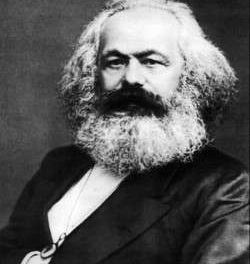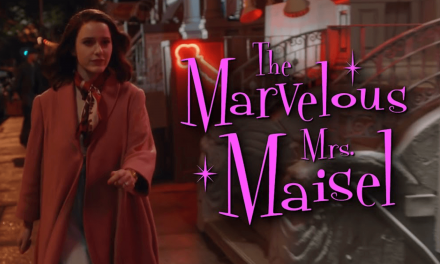A decade ago, Bernie Sanders and I arrived on the same plane from New York to a public event in the mid-west. We were allocated shared transport from the airport, so I spent maybe forty minutes with him.
The event we were headed to was about media reform. Other speakers included Jesse Jackson, Amy Goodman, Billy Bragg (whom noone had heard of), and Phil Donahue. My friend Bob McChesney was our presiding guru. I was participating in the second-string, academic component of the show. At the time, Sanders was already in Congress and renowned on the national/notional left.
I’ve occasionally encountered politicians with the common touch. I briefly met Bill Clinton in downtown New York just days after September 11, 2001, when he came to visit us, hugging and weeping as he did so. I saw Neville Wran stop to speak to a cleaner early one morning at an airport who had asked him something, and dedicating a deal of time to do so.
One of the skills—or traits—that these people have when compared to celebrities, intellectuals, and above all, aca-fans, is that they are good schmoozers. They like to meet people as well as—perhaps in order to—govern them. They rarely spend time alone, and often find solitude difficult, just as the ordinary tasks of everyday life, for example organizing things, are beyond them, due to lack of practice.
During our cab ride, Bernie spoke to me in a way that was mostly about listening. I wasn’t a constituent—in those days, I wasn’t even a citizen. So it was hard to see how talking to me was in his interest. But he seemed to care. He wanted to know about my life, my ideas, and what I had come to say. He nodded approvingly when I said, ‘I’m a socialist.’ This was not something I often voiced in twenty-odd years living in the United States. As an immigrant who often faced difficulties re-entering the country, I didn’t feel secure doing so at dinner parties, and it was bad enough as an online dater admitting to vegetarian and secular status without spoiling such desperate, desolate nights still further.
The bourgeois media in the US, most importantly the three popular newscasters (ABC, CBS, and NBC—apologies to those obsessed by Fox News—it’s a minority cable outlet) essentially ignored Sanders’ Presidential candidacy until the primaries. No stimulus was given to his campaign by contrast with blanket coverage of his principal opponents on both the Democratic and Republican sides.
Here in the UK, comparisons are regularly drawn between Sanders and Jeremy Corbyn. They are both elderly white gentlemen, socialists, peaceniks, populists—and nice. Corbyn, too, has suffered the slings and arrows of outrageous coverage, though more through ideology than deniaL. His cadre regard this as an attempt to ‘destroy’ him.
The Guardian was outflanked by Corbyn’s elevation to leadership from the very rear of the backbenches, and reacted with immediate and intense hostility. I am struck by the paper’s crass ignorance of US politics, perhaps due to sending correspondents there for limited periods—but it was alarming to read asinine remarks on its native beat.
That was nothing compared to the BBC’s notorious Panorama episode (a carefully-chosen term), which was screened 72 hours prior to the Labour Party’s 2015 leadership election. Apart from cozy chats with unreconstructed Blairites, a breezy flight over the Tory heartland of rural southern England, and a careful avoidance of scholarly knowledge, the episode was given real color when its presenter John Ware referred to Corbyn’s ‘unusual friends’ over footage of anonymous Hezbollah militia.
Just weeks prior to his joyride over the Home Counties, Ware spoke out against BBC coverage of the Arab world on the grounds that it subjected Israel to greater ‘scrutiny’ than the Palestinians during his acceptance speech of a Wizo award. Wizo is ‘committed to improving the lives of thousands of vulnerable Israeli citizens’.
No wonder almost 90,000 people have petititoned the BBC to reconsider the way it describes Corbyn and Cameron in response to its systematically reactionary coverage.
But back to the Guardian. From his lofty summit of jingoism and following a week in New Hampshire Jonathan Freedland, advised us that, ‘I saw Bernie Sanders in action, and it’s quite something.’ This is so in part because the Vermont Senator does not share Corbyn’s ‘world view that seems forgiving of assorted dictatorships, so long as those dictatorships are hostile to the west’.
Away from the BBC’s Tory bias and the Guardian’s left-liberal anxiety, Corbyn graced his first appearance as leader of the opposition at Prime Minister’s Question Time with six queries derived from the 40,000 voters who had responded to his request for topics to put to Cameron in the House. Cue Bernie in the cab.
Whatever happens to their leadership ambitions, perhaps Corbyn was listening to ordinary people, just as Sanders made me feel listened to a decade ago. And much more importantly, as Sanders makes Erica Garner feel. In the midst of adolescent anger from oligarchs and technocratic tirades by neoliberals, that quality alone is something we might proudly associate with socialism today.
Toby Miller is Emeritus Distinguished Professor at the University of California, Riverside, the Sir Walter Murdoch Professor of Cultural Policy Studies at Murdoch University, Profesor Invitado at the Universidad del Norte, Professor of Journalism, Media and Cultural Studies at Cardiff University/Prifysgol Caerdydd and Director of the Institute for Media & Creative Industries at Loughborough University in London. He can be contacted at tobym69@icloud.com and his adventures scrutinized at www.tobymiller.org.





